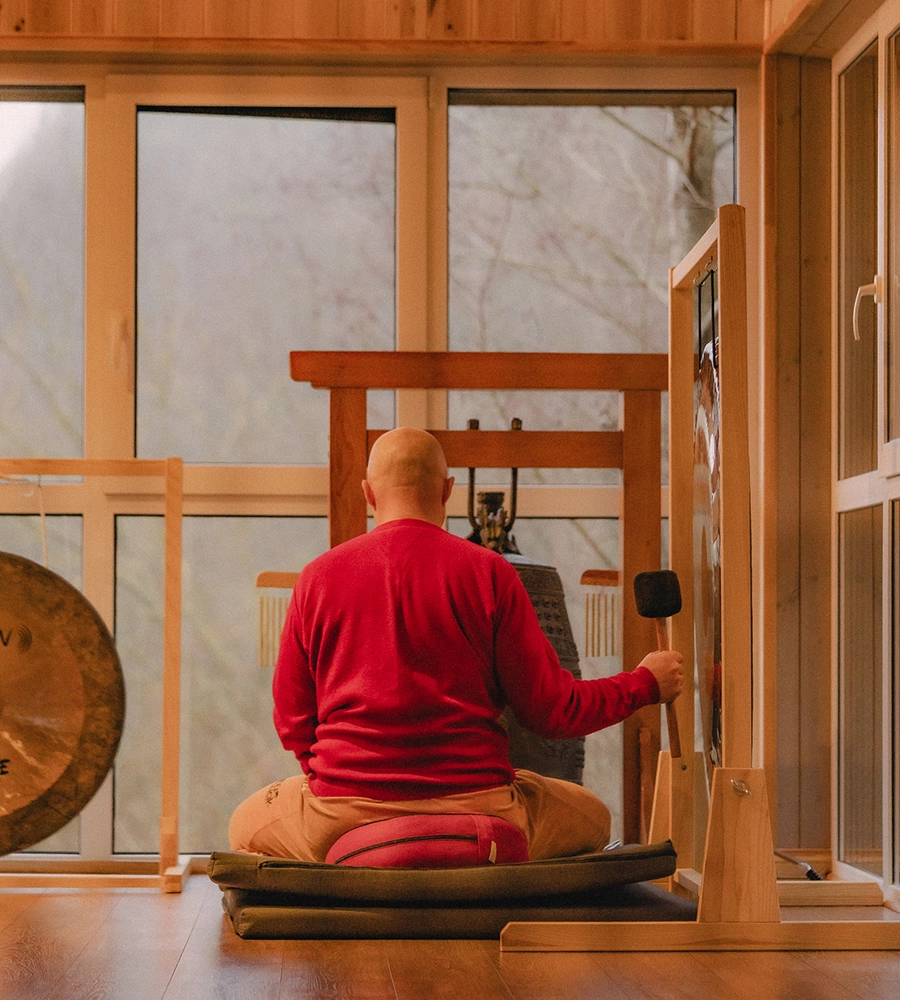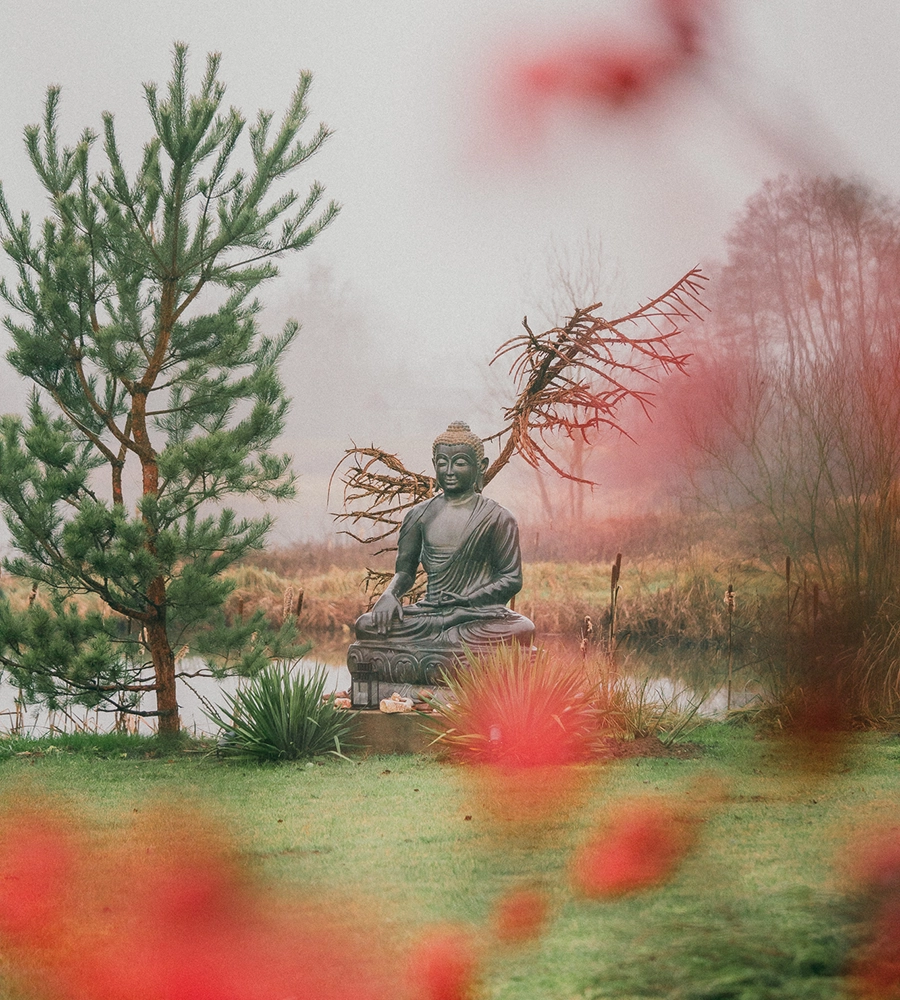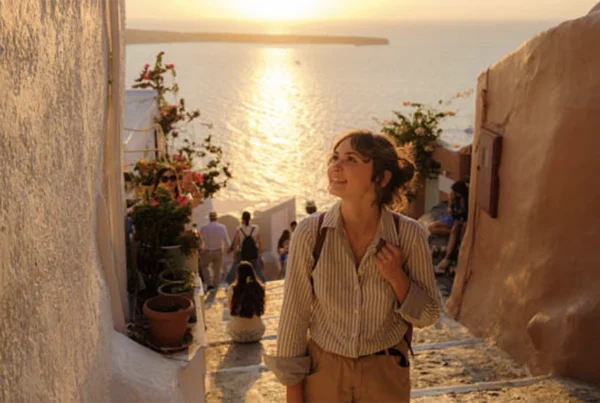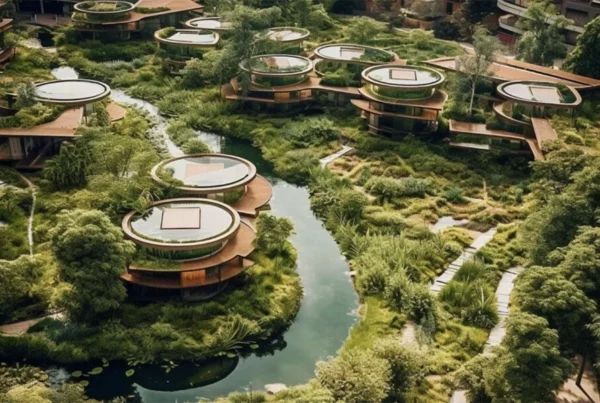As we continue our Heartspace series, produced by Om Creative, the second episode takes us to Zen Forest (original: “Zen Miškas”) in Lithuania – a retreat designed with thoughtful intention, encouraging mindfulness, authentic connection, and genuine transformation. Through up-close storytelling, we meet the visionaries behind these spaces and explore these purposeful environments.
We had been following Zen Forest online for a long time, drawn to its simplicity and the depth of practice it seemed to foster. As a Zen practitioner myself, this place has always intrigued me. On a chilly December day, we finally made the drive from my birth town of Kaunas, winding through silent forest roads, hoping to understand it more deeply.
Linas Ryškus, the founder of Zen Forest, greeted us with a no-nonsense warmth, inviting us into his home, which sits beside the main retreat building. Over cups of coffee, we spoke about life, philosophy, and the winding path that led him here. Linas had a prominent career as a TV producer, director and executive, yet, despite his professional achievements, he felt drawn to a different life – one rooted in simplicity and contemplation. He spent years obsessively searching for the right location, exploring countless properties. When he finally arrived at this particular spot, something clicked immediately – he knew he had found exactly what he’d been searching for.

A Space Unlike Any Other
Many retreat spaces juggle financial survival with their original mission, often becoming event venues on the side. Zen Forest refused to compromise. Here, the focus is unshakable: meditation, practice, and retreat. Teachers and visitors alike sense it immediately – the absence of outside interference, the residue of silence in the air. As Linas explains, “This place was built for retreats and nothing else. You can feel it immediately – there’s no other energy here.”
The land itself sets the tone. The Neris River, the second largest in Lithuania, flows past the retreat, its waters reflecting the thick forests that line its banks. Nearby, ancient burial sites hint at centuries of human presence.
The retreat consists of ten rooms across two houses, a spacious Dharma Hall for meditating and other practices, and open land for those who prefer to set up tents and sleep beneath the trees. A sauna and a wooden hot tub sit beside a pond that never runs dry, offering a natural place for a cold plunge in winter or a pleasant swim in the summer. The design of Zen Forest is simple, intentional, and functional, no unnecessary decoration, no distractions. Each space serves a purpose, each element quietly guiding visitors toward stillness.
Wholesome vegetarian meals are thoughtfully provided, reflecting this philosophy of simplicity and nourishment. Every part of Zen Forest is designed to support those who come seeking something beyond the surface.
Intentional Design
Zen Forest is filled with thoughtful details, creating an atmosphere of quiet reverence. Inside the Dharma Hall, visitors find calligraphy from Zen masters, hand-painted scrolls, and traditional artwork that encourage contemplation. Outside, a striking Buddha statue offers a unique story: originally from one of Lithuania’s most notorious nightclubs, it silently witnessed years of excess and wild parties. When the nightclub closed, the statue found its new home at Zen Forest. Today, both the Buddha statue and the main retreat building have received blessings from Korean monks and Zen masters, reflecting the authentic Zen spirit of the space. As Linas thoughtfully remarks, “Life is strange. This Buddha saw everything in the club, and now it meets people seeking silence and peace.”
The Balancing Act: Ethics and Sustainability
Retreats don’t run on ideals alone. Zen Forest had to become self-sustaining without diluting its purpose. Linas shrugs off the question of ethics versus business, ‘’there is no contradiction’’, he says. The retreat funds itself, booked well in advance, proving that a space built with integrity can thrive.
There’s no handpicking of ‘ideal’ guests. People find their way here because they need to. Some come with teachers, others on their own, looking for something they can’t quite name. It doesn’t matter. The space does its work, regardless of expectation.

A Zen Way of Being
Linas is a true Zen practitioner, not in a performative way, but in the way he carries himself and approaches life. No fluff, no unnecessary embellishment. There’s a well-known Zen saying: When walking, walk. When eating, eat. This could easily apply to Linas and the way Zen Forest operates. No detours, no indulgence in excess. Just what is needed. Linas himself explains this plainly: “The situation itself tells you what needs to be done. If I was a monk, I’d sit in a monastery. But I’m here, so maintaining this place – that is my meditation.”
How to Get to Zen Forest
Coordinates: 54°57’15.7″N 24°38’55.5″E
From Vilnius: Drive along the Ukmergė highway. Around the 35th kilometre, take the exit towards Bartkuškis. Continue driving towards Musninkai. After passing Musninkai church, turn left towards Čiobiškis (12 km). About 200 meters after crossing the white Čiobiškis bridge, turn left immediately after the small cemetery.
From Kaunas: After passing the Čiobiškis sign, turn right just before the small cemetery. When you reach Čiobiškis church, turn left, then immediately turn right downhill. After about 70 meters, turn left onto the unpaved road leading towards the river. Continue along this road as it bends slightly to the right, and it will lead you directly into the retreat yard. Note: The first gates you see are not for the retreat. Continue following the path as it curves right, guiding you straight to Zen Forest.
Online:
Website: www.zenmiskas.lt
Facebook Page: https://www.facebook.com/pages/Zen%20Mi%C5%A1kas/103479108947376/







